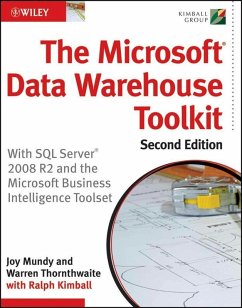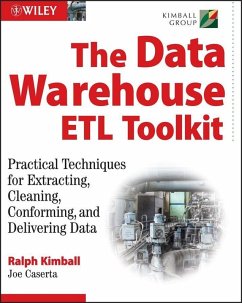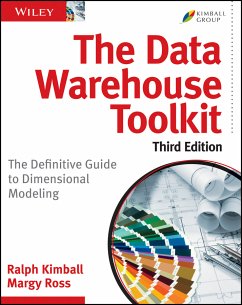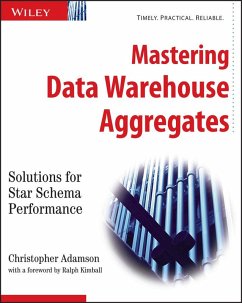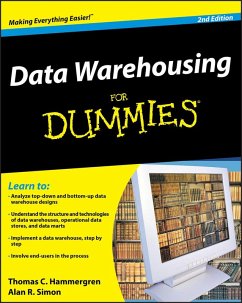
The Data Warehouse Lifecycle Toolkit (eBook, ePUB)
Versandkostenfrei!
Sofort per Download lieferbar
39,99 €
inkl. MwSt.
Weitere Ausgaben:

PAYBACK Punkte
0 °P sammeln!
A thorough update to the industry standard for designing, developing, and deploying data warehouse and business intelligence systems The world of data warehousing has changed remarkably since the first edition of The Data Warehouse Lifecycle Toolkit was published in 1998. In that time, the data warehouse industry has reached full maturity and acceptance, hardware and software have made staggering advances, and the techniques promoted in the premiere edition of this book have been adopted by nearly all data warehouse vendors and practitioners. In addition, the term "e;business intelligence&...
A thorough update to the industry standard for designing, developing, and deploying data warehouse and business intelligence systems The world of data warehousing has changed remarkably since the first edition of The Data Warehouse Lifecycle Toolkit was published in 1998. In that time, the data warehouse industry has reached full maturity and acceptance, hardware and software have made staggering advances, and the techniques promoted in the premiere edition of this book have been adopted by nearly all data warehouse vendors and practitioners. In addition, the term "e;business intelligence"e; emerged to reflect the mission of the data warehouse: wrangling the data out of source systems, cleaning it, and delivering it to add value to the business. Ralph Kimball and his colleagues have refined the original set of Lifecycle methods and techniques based on their consulting and training experience. The authors understand first-hand that a data warehousing/business intelligence (DW/BI) system needs to change as fast as its surrounding organization evolves. To that end, they walk you through the detailed steps of designing, developing, and deploying a DW/BI system. You'll learn to create adaptable systems that deliver data and analyses to business users so they can make better business decisions.
Dieser Download kann aus rechtlichen Gründen nur mit Rechnungsadresse in A, B, BG, CY, CZ, D, DK, EW, E, FIN, F, GR, HR, H, IRL, I, LT, L, LR, M, NL, PL, P, R, S, SLO, SK ausgeliefert werden.



